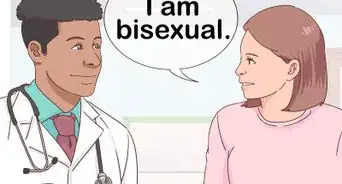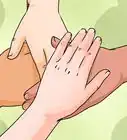This article was co-authored by Deb Schneider, LCSW, PPSC. Deb Schneider is a Licensed Clinical Social Worker in private practice in Oakland, CA, and a Program Manager for the Weiland Health Initiative at Stanford University. With over 15 years of experience, she specializes in creating safe spaces, respectful of marginalized identities, at the high school and college levels. Deb holds a Bachelor’s degree in Sociology and Women's Studies from Clark University and a Master of Social Work (MSW) with Health Concentration from the University of California, Berkeley School of Social Welfare.
There are 11 references cited in this article, which can be found at the bottom of the page.
wikiHow marks an article as reader-approved once it receives enough positive feedback. This article has 12 testimonials from our readers, earning it our reader-approved status.
This article has been viewed 668,811 times.
You have realised your sexuality, have accepted it, and now you have decided to come out of the closet. You may want to stop and think about whether you are doing the right thing by confiding in certain people at this point. The key is to know if you are ready, then choose the first people you tell for their potential as positive supporters, and then decide whether or not you would like some of your more casual acquaintances to know. If you are in a gay or lesbian relationship, your partner will be able to support you. Remember, being LGBT+ is not a bad thing, it can be a scary thing coming out but, in the end, you will be glad that you did!!
Things You Should Know
- Coming out is a personal choice. It's completely up to you how, when, and if you do it.
- Choose someone kind and supportive to come out to first. That will make it easier to come out to other people later on.
- You can come out in person, with a letter, or even over email. Do what feels best and safest for you.
Steps
Planning Ahead
-
1Realize that you're making a brave choice, and you will likely be happier in the long run than if you tried to hide it. Coming out is a big step, and you can be proud of yourself. Research shows that gay people tend to be happier when they aren't closeted.[1]
-
2Choose a method of coming out.[2] Coming out via in-person conversation is a common method. You can also write a letter or email if you think it would be easier to express yourself in writing. If you know they will be accepting and you want to have fun with it, you could try a celebratory option, like baking a cake that says "I'm gay" on it.
- Coming out doesn't have to be a big event. One option is to casually mention a crush.
Advertisement -
3Prepare yourself for common questions. People, especially those close to you, may have questions or concerns about your orientation. While you can't anticipate everything they might ask, here are some of the more common questions.
- How long have you felt this way? Think back to your first crush. Try talking about how happy you felt, or how happy you feel now that you're ready to be yourself.
- Are you sure? Tell them that you wouldn't have told them if you weren't serious about it, and that you're hoping for their support.
- What if people mistreat you? You can't change whether you're gay. You can choose to only come out to people who have good attitudes, and to surround yourself with positive people. You can also tell the person that their acceptance and support will help you feel happier.
- Will you be able to have children? If you'd like, you can talk about options like adoption, gestational carriers, or sperm donors. You can also bring up potential future options such as creating synthetic sperm from a woman's bone marrow.[3] Or just say "My partner and I will figure things out when the time comes" and leave it at that.
- Do you think God will be okay with this? You might reply that you believe God loves all His children, and you may choose to add that you think that this is God's plan for you or that you think a life full of good deeds will please God.
- I'm worried about you. Acknowledge that it's okay to be worried, since society is still homophobic. Assure the person that being yourself is what makes you happy. Tell them that their love and support would make a difference to you.
Coming Out
-
1Choose the first person you're going to come out to.[4] It's best to choose someone who is supportive, kind, and close to you (if possible). Then, they can help you come out to others.[5]
- If you want to come out to your parents, and one parent is more accepting than the other, come out to the more accepting parent first. They can help you come out to your other parent.
-
2Come out during an appropriate time.[6] The best time will depend for different people. It's best to come out during a calm time, when they are reasonably happy and not distracted by other things. If you aren't sure if this is a good time to talk, you can ask them if it is.
- If you anticipate a heartfelt conversation, try asking "I'd like to tell you about something that's important to me. Is now a good time?"
-
3When in doubt, speak from the heart. If you're planning a longer conversation, then talk about what you think and feel.
- "I wanted to let you know that I'm gay. I've had feelings for girls since I was 7 years old. I'm telling you this because I want to share the important parts of my life with you, and I'm hoping for your support."
- "I've had a crush on another boy for a while now. I'm pretty sure I'm gay. I'm telling you because I'm hoping that I can share this part of my life together, and that I can turn to you for advice and support with dating."
-
4Emphasize your happiness to people who care about you. Some people might be worried about how you'll cope in a homophobic society. Talk about how being openly gay helps you feel authentic and happy, and ask for their support.
-
5Give them time to process, if needed. Some people may have suspected you were gay, while others might be surprised and need a moment. Let them think about it, without pushing for a reaction right away.
- Sometimes, people's first reaction is what society has taught them how to react, while their second reaction is more genuine and thoughtful. If they are saying hurtful things, walk away. They might come back later once they have cleared their head and come to their senses.
-
6Start coming out to more casual friends as you feel ready. You might have a long face-to-face conversation, or you might just say "Hey, I'm gay" and keep it simple. It's up to you, and what you think works best with the friend and your relationship.
- More and more people are open to the idea of LGBT+ people, so you may find that many of your friends are accepting.
Assessing the Situation
-
1Consider whether you're ready to come out. Coming out is a personal choice, that should only be done because you feel like it's right for you.[7]
- Do you feel fairly certain of your identity?
- Do you feel secure in your identity, or are you still struggling to accept being gay? (If it's the latter, you might only want to open up to a few people at first.)
- Is this choice coming from a desire within you to be open, or peer pressure making you feel like you have to come out?
-
2Think about whether some people might react negatively to you. You shouldn't risk your safety or well-being by coming out.[8] You don't owe anyone (not even family) information about your orientation, and you have every right to keep it quiet if you think you need or want to do so.
- If your safety, emotional well-being, or financial security (such as your college fund) would be jeopardized by coming out to your family, then stay closeted for now. Wait until after you are no longer dependent on family.
- If someone takes a "hate the sin, love the sinner" approach, then it's probably best to distance yourself. They are unlikely to truly accept you.
-
3Try dropping hints if you're unsure whether someone will be accepting. Don't come out to someone if you aren't sure whether they'll react well. Instead, try bringing up LGBT-related topics and seeing how they respond.[9] This can give you a hint to whether they'll treat you well if you come out to them. See how they react if you:
- Ask their opinion on an LGBT+ celebrity, holiday, or news event
- Point out a rainbow flag, pin, or shirt that you see in public
-
4When in doubt, give it time. There's no rush. Take more time to consider your options and see how people react.[10]
Expert Q&A
-
QuestionIs it a bad idea to come out to intolerant parents?
 Lauren Urban, LCSWLauren Urban is a licensed psychotherapist in Brooklyn, New York, with over 13 years of therapy experience working with children, families, couples, and individuals. She received her Masters in Social Work from Hunter College in 2006, and specializes in working with the LGBTQIA community and with clients in recovery or considering recovery for drug and alcohol use.
Lauren Urban, LCSWLauren Urban is a licensed psychotherapist in Brooklyn, New York, with over 13 years of therapy experience working with children, families, couples, and individuals. She received her Masters in Social Work from Hunter College in 2006, and specializes in working with the LGBTQIA community and with clients in recovery or considering recovery for drug and alcohol use.
Licensed Psychotherapist The most important thing is you have to be safe, physically and emotionally. That’s the evaluation and measurement that has to be taken before you decide whether or not you’re going to come out to your family. It may make sense to try to prepare yourself by finding people that you could stay with if you get kicked out of your house, or places you can go, or people you can turn to for help.
The most important thing is you have to be safe, physically and emotionally. That’s the evaluation and measurement that has to be taken before you decide whether or not you’re going to come out to your family. It may make sense to try to prepare yourself by finding people that you could stay with if you get kicked out of your house, or places you can go, or people you can turn to for help. -
QuestionHow can I have a good experience coming out to people?
 Lauren Urban, LCSWLauren Urban is a licensed psychotherapist in Brooklyn, New York, with over 13 years of therapy experience working with children, families, couples, and individuals. She received her Masters in Social Work from Hunter College in 2006, and specializes in working with the LGBTQIA community and with clients in recovery or considering recovery for drug and alcohol use.
Lauren Urban, LCSWLauren Urban is a licensed psychotherapist in Brooklyn, New York, with over 13 years of therapy experience working with children, families, couples, and individuals. She received her Masters in Social Work from Hunter College in 2006, and specializes in working with the LGBTQIA community and with clients in recovery or considering recovery for drug and alcohol use.
Licensed Psychotherapist Finding a community and grounding yourself in a supportive community is one of the biggest ways that you can take care of yourself while you’re coming out. Finding core sources of support, acceptance, and love is going to be really important when you're going through the process of coming out to your family, friends, and community. Coming out is a process. It’s not necessarily something that happens overnight. There is the one event of saying the words to somebody, but the process of exploring what that identity means and settling into the person you want to be can take years.
Finding a community and grounding yourself in a supportive community is one of the biggest ways that you can take care of yourself while you’re coming out. Finding core sources of support, acceptance, and love is going to be really important when you're going through the process of coming out to your family, friends, and community. Coming out is a process. It’s not necessarily something that happens overnight. There is the one event of saying the words to somebody, but the process of exploring what that identity means and settling into the person you want to be can take years. -
QuestionWhen is a good time to tell people?
 Lauren Urban, LCSWLauren Urban is a licensed psychotherapist in Brooklyn, New York, with over 13 years of therapy experience working with children, families, couples, and individuals. She received her Masters in Social Work from Hunter College in 2006, and specializes in working with the LGBTQIA community and with clients in recovery or considering recovery for drug and alcohol use.
Lauren Urban, LCSWLauren Urban is a licensed psychotherapist in Brooklyn, New York, with over 13 years of therapy experience working with children, families, couples, and individuals. She received her Masters in Social Work from Hunter College in 2006, and specializes in working with the LGBTQIA community and with clients in recovery or considering recovery for drug and alcohol use.
Licensed Psychotherapist I'm a firm believer that there's no perfect time to do anything. I prefer the ripping-the-bandaid-off approach. If you need to just say it, in order to get it said, then just say it. You can fix it later, you can say it better or more effectively at a later time. Getting that initial shock out of the way will give you more confidence. Your intuition will guide you for the right time to say it, even if it doesn’t feel like the perfect time to say it. Just listen to that gut feeling.
I'm a firm believer that there's no perfect time to do anything. I prefer the ripping-the-bandaid-off approach. If you need to just say it, in order to get it said, then just say it. You can fix it later, you can say it better or more effectively at a later time. Getting that initial shock out of the way will give you more confidence. Your intuition will guide you for the right time to say it, even if it doesn’t feel like the perfect time to say it. Just listen to that gut feeling.
Warnings
- Don't bother to retaliate to people who purposely say negative things. It is best to reply with something like: "I appreciate your concern, but I feel comfortable with who I am and I'm sorry that you feel that way", and to walk away. They aren't worth your time and energy.⧼thumbs_response⧽
- If someone acts awkward after you come out, try giving them a little time. If it doesn't pass, try addressing it with them and asking what's going on.⧼thumbs_response⧽
- If you are suffering from harassment anywhere, don't be afraid to ask for help from authority figures.⧼thumbs_response⧽
- Keep your safety in mind when choosing when and how to come out. If you live in a very conservative place, you may want to seek out other members of the LGBT community first to learn about their experiences. If there's a risk of severe harassment, it may be safest to stay quiet.⧼thumbs_response⧽
- Don't use someone as a beard without their consent. It's not fair to string them along.⧼thumbs_response⧽
References
- ↑ https://www.health24.com/Mental-Health/Stress/News/being-in-the-closet-at-work-is-stressful-for-gay-people-20171011-2
- ↑ https://www.stonewall.org.uk/help-advice/coming-out/coming-out-young-person
- ↑ https://www.discovermagazine.com/health/how-close-are-we-to-making-babies-from-bone-marrow
- ↑ https://www.ditchthelabel.org/coming-out-to-your-parents/
- ↑ Deb Schneider, LCSW, PPSC. Licensed Clinical Social Worker. Expert Interview. 2 April 2021.
- ↑ https://www.ditchthelabel.org/coming-out-to-your-parents/
- ↑ http://www.nyacyouth.org/are-you-ready-to-come-out-as-a-gay-teen/
- ↑ Lauren Urban, LCSW. Licensed Psychotherapist. Expert Interview. 3 September 2018.
- ↑ http://kitschmix.com/how-to-drop-hints-you-are-gay-before-you-come-out/
- ↑ https://www.theguardian.com/lifeandstyle/2016/may/14/10-tips-how-come-out-lgbt-family-friends-gay-lesbian
- ↑ Lauren Urban, LCSW. Licensed Psychotherapist. Expert Interview. 3 September 2018.
- ↑ Lauren Urban, LCSW. Licensed Psychotherapist. Expert Interview. 3 September 2018.
- https://www.stonewall.org.uk/help-advice/coming-out/coming-out-adult-1
- https://young.scot/get-informed/national/coming-out-as-lesbian-gay-or-bisexual
About This Article
Coming out as gay or lesbian can be scary, but with some careful planning, you’ll be able to share your true self with the people who care about you! To start, consider whether you feel ready to come out and make sure your safety won't be at risk. When you’re ready to come out, sit down with 1 or 2 people closest to you, like a friend or parent, and speak from the heart. You can say something like, “I wanted to let you know that I’m gay. I’ve had feelings for people of my gender since I was 7 years old. I’m telling you because I want to share the important parts of my life with you and I’m hoping for your support.” If they ask “Are you sure?” respond with “I wouldn’t be telling you if I wasn’t serious about it.” Once you tell them, give them time to process, even if that means continuing the conversation later. Keep in mind that people who truly care about you will eventually accept you for who you are! To learn how to come out to casual friends, read on!


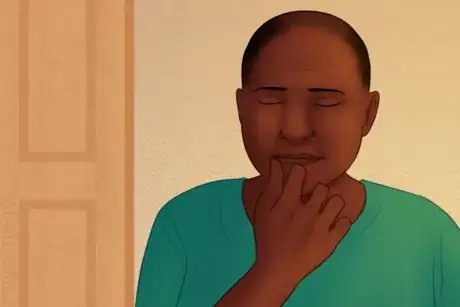


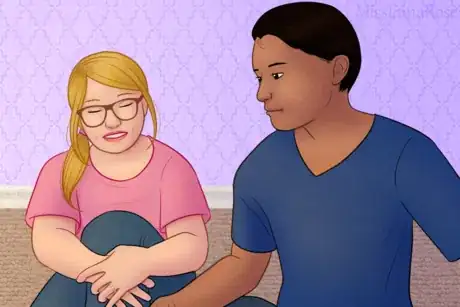
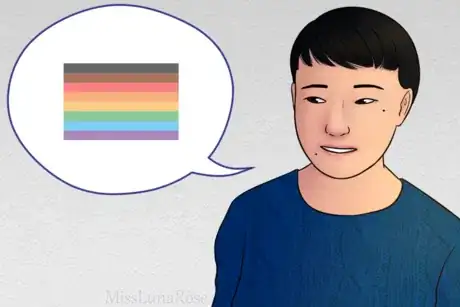
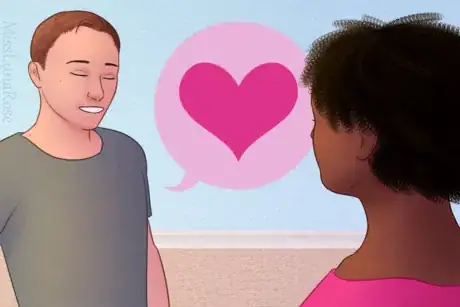
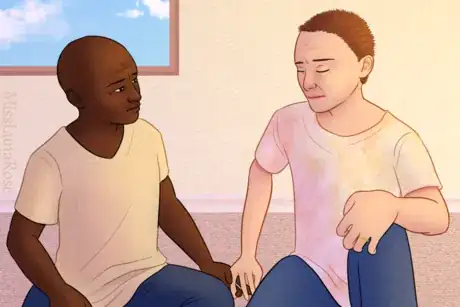
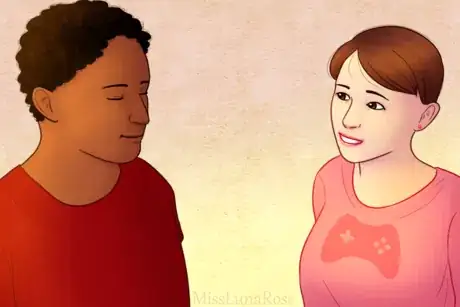

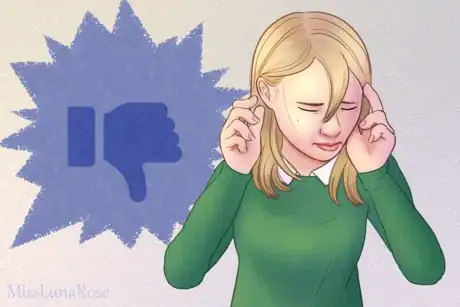

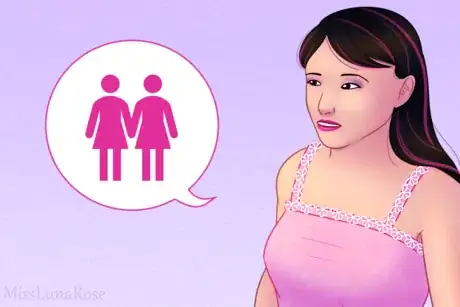
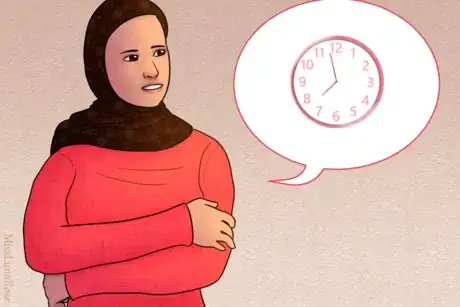

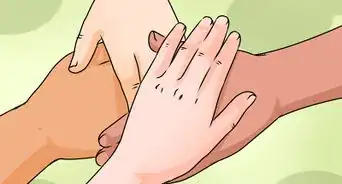





-Step-15-Version-3.webp)




